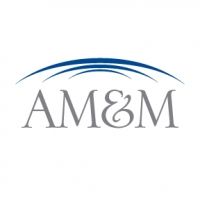…At least until there is another overtime update.
Let’s review the history of these regulations. Prior to leaving office, President Obama’s Department of Labor significantly revised the salary requirements in order for certain classifications of employees to qualify for exemptions from overtime pay under the Fair Labor and Standards Act (“FLSA”). The DOL increased the salary minimum to qualify for an exemption from approximately $23,000 to approximately $47,000. Small employers and nonprofits scrambled to find a way to comply with the new regulations by the compliance deadline of December 1, 2016.
On November 22, 2016, the United States District Court for the Eastern District of Texas issued an injunction against the implementation of those rules. Small employers and nonprofits breathed a sigh of relief and tabled their new policies and employee classification changes.
Between November 22, 2016 and August 31, 2017, much happened in the Eastern District of Texas and the Fifth Circuit. Appeals were filed, extensions of time to file briefs were granted, and the Department of Labor, now led by President Donald Trump, revised its position on these rules. President Obama’s DOL had argued that the new regulations were a proper exercise of DOL’s rule making, and the President’s executive, powers. President Trump’s DOL argued that while the DOL and the President were within their rights to establish and revise a salary requirement, they would not defend this particular salary requirement.
On August 31, 2017, the Eastern District of Texas agreed, essentially, with the Trump DOL. The Court found that while the DOL is free to set and revise a salary requirement, this particular salary requirement was not enforceable.
The good news is that the salary requirement set by the Obama DOL was so high as to present a significant financial and operational burden for small employers and nonprofits, and this ruling eliminates that concern. However, the ruling leaves this DOL, or any DOL, free to revisit the salary requirement. In other words, we will all take this ride again sometime in the future.
Employers should continue to ensure compliance with the existing rules, and check back in with AMM for any future changes to the salary requirement.
Joanne Murray, a Partner of Antheil Maslow & MacMinn, LLP, in the firm’s business and finance practice group, was elected President of the Board of Directors of NAMI PA, Bucks County Chapter at their September board meeting. The organization’s mission is to improve the lives of the citizens of Bucks County who suffer from a serious mental illness or, as family members and caregivers, share the burden of these devastating illnesses
On Sunday, October 22nd, NAMI PA, Bucks County Chapter will sponsor a free community event focused on raising public awareness of PTSD and its devastating effect on veterans, who die by suicide at the rate of 22 per day. March for the 22 is a 22-kilometer walk that ends at the Bucks County Courthouse Memorial Courtyard. The event runs from noon to 3:30 p.m. and features food, music, military vehicles, and special guest speakers. For more information, visit www.namibuckspa.org.
Antheil Maslow & MacMinn's Doylestown office is one of the buildings being offered for tour as part of the Central Bucks Chamber of Commerce Excellence in Design Tour on Sunday, September 24th from 1 - 4 pm. The theme of this year's tour is "Adaptive Reuse of Buildings in Doylestown". Here are the details:
Tickets are $15 pp in advance, $20 day of tour - tickets at CentralBucksChamber.com or 215.348.3913.
Meet at Bucks County Parking Garage at 12:30
Post-Tour Reception: Chambers 19 Bistro & Bar
19 N. Main St., Doylestown, 18901
Light Fare, Cash Bar
The tour also includes Casey Law, Doylestown Baptist, Simply Fresh, Nathan James, and the Mellon Building. Major event sponsor is Carroll Engineering Corporation.
Joanne Murray, a partner of Antheil Maslow & MacMinn and member of the firm’s business and finance practice group, was a presenter at the Bucks County Bar Association’s continuing legal education program, “Company Formation Best Practices: People and Collateral”. The program focused on the intersection between intellectual property and general business issues when forming small to medium sized enterprises.
Ms. Murray counsels business owners as they face the financial, legal and operational challenges that are an inevitable part of the life cycle of a business.
Elizabeth Fineman, an Associate with Antheil Maslow & MacMinn, received the 2017 Isadore Kohn Young Leadership Award from the Jewish Federation of Greater Philadelphia on September 13th . The award recognizes an exemplary record of participation in the Federation’s programs, communal affairs, and annual campaign as well as demonstrated growth potential within the leadership ranks of the organization and its partner agencies. Ms. Fineman also commenced her tenure on the Federation’s Board of Trustees at that time.
Elizabeth is a family law attorney concentrating on the full range of domestic relations matters, including divorce, child support, alimony/spousal support, marital taxation, equitable distribution and child custody.
Antheil Maslow & MacMinn, an AV Preeminent firm, congratulates our 2017 Top Rated Lawyers named by the Legal Intelligencer, American Lawyer Media and Martindale-Hubbell™. William Antheil, Patricia Collins, William MacMinn, Michael Mills, Joanne Murray, and Jessica Pritchard have been named for this distinction awarded to AV Preeminent attorneys who demonstrate leadership qualities within their field.
For more than twenty-five years, Antheil Maslow & MacMinn, LLP has provided sophisticated legal advice and representation at competitive fees to a wide range of business and nonprofit enterprises throughout the region. We bring a depth and breadth of experience, insight, forward-thinking and personalized service to every client engagement, whether the client is an entrepreneur, family business, middle-market company, multinational enterprise or nonprofit organization. We pride ourselves on developing deep relationships with our clients by taking time to understand their businesses and goals so that we can provide responsive, practical legal advice and aggressive advocacy. Our attorneys become part of each client's team and are invested in their long-term success.
We offer the same high-quality innovative legal services and client-centered focus to our individual clients, with services such as family wealth preservation including tax and estate planning, estate administration and litigation, family law, residential real estate matters, employment disputes and personal injury representation.
Martindale-Hubbell facilitates secure online peer review surveys of lawyers across multiple jurisdictions and geographic locations. Reviewers are asked to assess their colleagues' general ethical standards and legal ability in a specific area of practice. A confidential threshold number of qualified responses is required to achieve a Martindale-Hubbell® Peer Review .
AMM is pleased to announce the addition of Stephanie M. Shortall to the Firm’s Corporate and Estate Planning and Administration practice groups. Ms. Shortall’s practice is focused on advising closely held businesses on the full range of issues faced in today’s legal landscape. She also works with individuals to develop comprehensive estate plans and administer estates of varying sizes and complexity. Stephanie Shortall is active in a number of local civic and charitable organizations. To learn more about Stephanie, check her attorney profile.
Legislative Updates Owners of PA LLC’s & Partnerships Need to Know – Part 2
Written by Joanne MurrayEarlier this year, amendments to Pennsylvania’s statutes governing partnerships and limited liability companies (often referred to as unincorporated entities or alternative entities) went into effect. I recently blogged about the “transferable interest” concept adopted by the Act. Today, in Part 2 of this series, I highlight another significant change brought about by Act 170: the clarification of the fiduciary and other duties owed in the context of an unincorporated entity. In general, there are three basic duties:
• Duty of loyalty: generally, a duty to avoid self-dealing, competing and usurping company or partnership opportunities
• Duty of care: a duty to refrain from gross negligence and recklessness
• Duty of good faith and fair dealing: a duty to deal fairly and consistently with the terms of the parties’ agreement and the purpose of the entity
In a general partnership, each partner owes the above duties to each of the other partners and to the entity.
In a limited partnership: (a) the general partner owes each of these duties to the limited partners and to the partnership; and (b) the limited partners owe only a duty of good faith and fair dealing to each other.
In a manager-managed LLC: (a) the manager owes these duties to the members and to the entity; and (b) the members owe a duty of good faith and fair dealing to each other. In a member-managed LLC, the members owe these duties to each other and the company.
Some of these duties may be modified by agreement of the parties. In their operating or partnership agreement, the parties may modify, but not eliminate, the duty of loyalty and the duty of care, as long as the modification is not “manifestly unreasonable.” This standard is not defined and is left to the courts to interpret, but in general the agreement cannot convert the relationship into a strictly arm’s length relationship. The duty of good faith and fair dealing may not be modified or removed, but the owners’ agreement can identify the standards by which this duty will be measured.
A Cautionary Tale for Employers: One-Time Racial Slur Can Be Basis of Harassment Claim Against Employer
Written by Michael KlimplClarifying its earlier rulings, the Court of Appeals for the Third Circuit (which includes Pennsylvania) has ruled that a single utterance of a racial slur at the workplace could support a claim for harassment.
In this case, two African-American males (plaintiffs) brought suit challenging their firing on the basis that their termination was discriminatory and racially motivated.
The employees specifically alleged that when they arrived at work on various occasions, an anonymous note was written on the sign-in sheets: “don’t be black on the right of way.” They also asserted that while they had more experience working on pipelines than the non-African-American workers, they were only permitted to clean the pipelines rather than work on them. Significantly, a supervisor of these two African-American employees used a severe racial slur to threaten firing if a specific project was not completed to his satisfaction.
The two employees reported this offensive language to a superior and two weeks later they were fired without explanation. After being rehired they were again terminated for “lack of work”.
The suit filed in federal District Court specifically alleged unlawful harassment, discrimination and retaliation. The District Court dismissed the harassment claim, holding that the facts in the complaint did not support a finding that the alleged harassment was “pervasive and regular”. The Court also dismissed the related claims of discrimination and retaliation.
Elizabeth Fineman of Antheil Maslow & MacMinn’s Family Law practice group was profiled in Suburban Life Magazine’s “Women Who Lead” feature. Ms. Fineman was selected for her outstanding legal career and commitment to community service. In addition to her busy family law practice, Elizabeth is active in the Jewish Federation of Greater Philadelphia, as well as the Anti-Defamation League and Crohn's & Colitis Foundation of America.
Fineman concentrates her practice exclusively on domestic relations matters and handles a variety of issues, including divorce, child support, alimony/spousal support, marital taxation, equitable distribution and child custody matters. She has handled many high-income support cases involving an intricate knowledge of both family law and complex financial issues.










